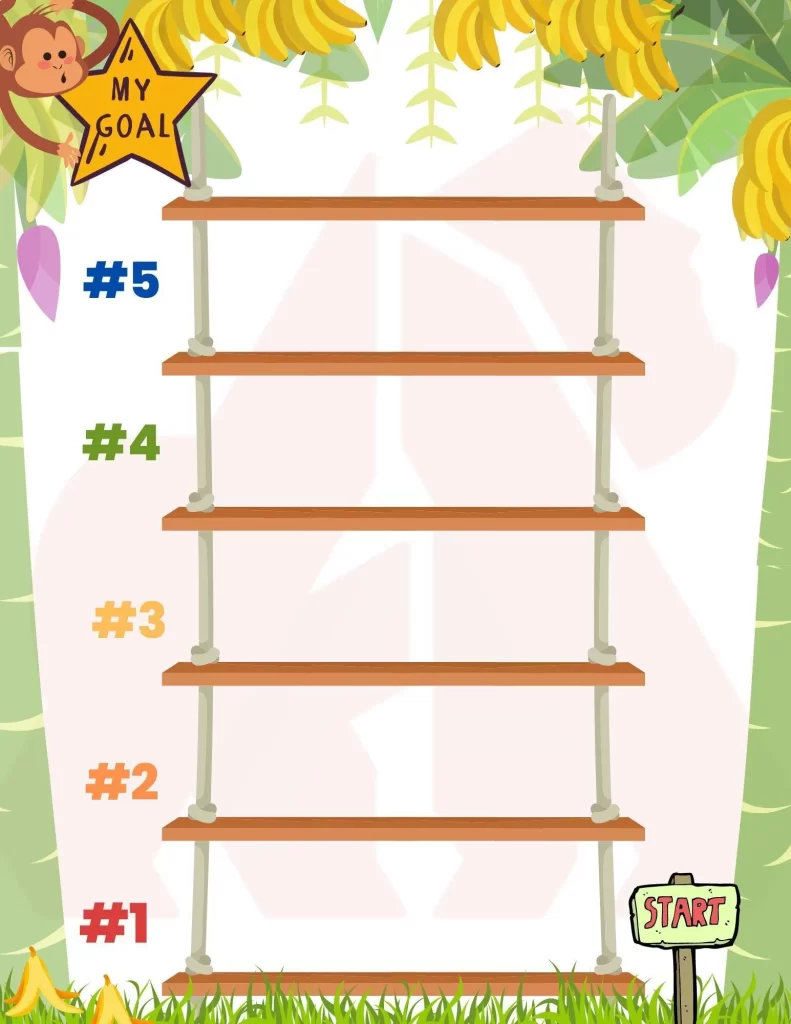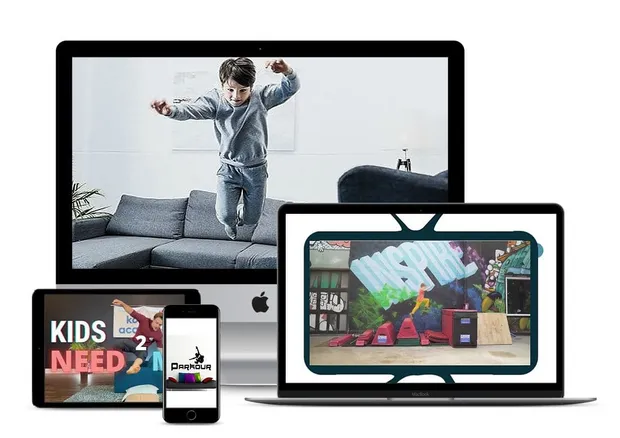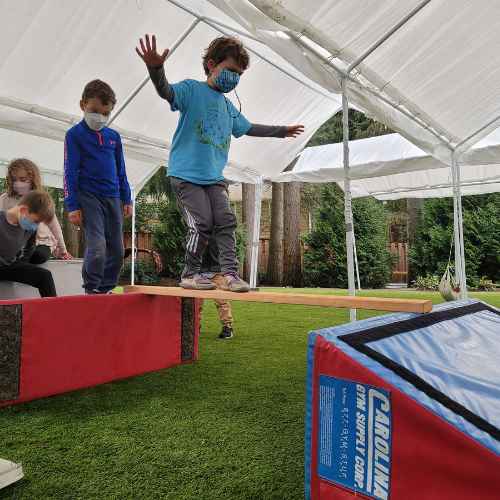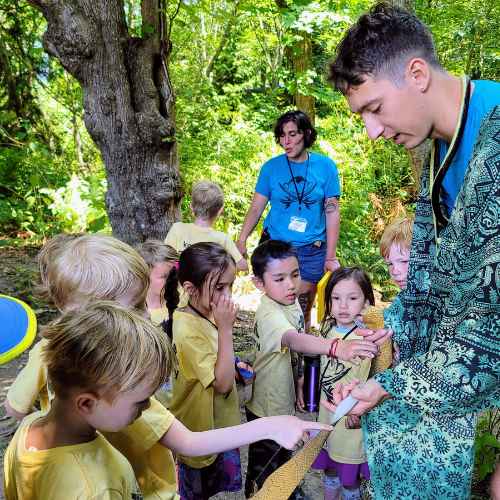
Confidence-building exercises are essential for kids to develop this crucial life skill at a younger age. We do not improve what we do not practice. Helping our kids to intentionally practice confidence prepares them to become independent, which leads to living a successful, happy life. So, this is for you, Mom and Dad, who want nothing more than to see your child develop their confidence to lead that life, and for those kids who need a little extra support in developing their confidence.
Confidence Building Exercises For Kids: A Boost In The Right Direction
- So often adults see kids as being fragile and weak, and believe that they need to be protected at all times. However, what we do not prepare them for is what they need to be protected from, and what we prepare them for is what they do not need to be protected from. So, do yourself and your children a favor, teach them how to build confidence so they can lead an independent life of prosperity and joy, and won’t be stuck relying on you forever. There is nothing more unappealing than a 40-year-old who is still dependent on their parents. So, where do we start? Many of you ask…
Is Confidence A Skill?
- Yes, all characteristics are skills, and all skills can be learned. This is part of having a ‘Growth Mindset’ that you may have heard about already. It’s so important that NASA bases its hiring on. The growth mindset is the understanding that you can develop any skill. However, we are born with varying levels of different characteristics. Some are born more reserved and quiet, and they can learn to develop their assertiveness and social skills, like public speaking. It just takes practice. We all are gifted with our initial traits and can grow the ones that will help us lead a balanced life.
How Do You Explain Confidence To A Child?
- Talking about confidence with our children can be challenging without defining it in terms they can understand. Breaking down this massive, overwhelming topic so that your 5-year-old can understand it as easily as your 15-year-old is not an easy task. So, here is our kid-friendly definition of confidence: Confidence means to believe in yourself and your abilities. There are two parts we need to understand about developing confidence:
- The first is the belief that you have the potential to achieve and succeed in whatever you set your mind to. This belief is the driver that leads us to work on and develop new skills and abilities.
- The second part is the skills and competencies we developed at some point in the past. The fact that we did not have a certain skill, worked on it and then got better and even mastered it, builds our confidence that we can learn and master everything.
- For example, if a 5-year-old is afraid to go to school, share with them the definition above and help them remember times when they were afraid yet had a positive experience. Use that experience to build their belief that they can do this. For instance, you might say, “Remember when you were scared to sleep in your bed, but now you sleep on your own and it’s not a problem?”
Raising Confident Kids: Why Is It Important?
- You rise or fall to the level of your beliefs. Confidence works like this: First, you need to believe in yourself. Then, fueled by belief, over time and with effort, you develop skills. These skills bring achievement, which in turn brings more confidence to try something even harder.
For example, if you are exercising by lifting a weight and you think you cannot do another rep, your strength will fall to the level of your belief, and you’ll prove yourself right. If you fight for that last rep with confidence and conviction, you will succeed, and then you grow. This principle is true for everything and every age. Teaching this to our children early gives them more time to live with this reinforcing cycle of confidence.
It will shift the trajectory of their life, leading them to a place of independence and prosperity that otherwise could have never even been dreamed of.
Confidence Building Exercises For Kids To Try
- Practice Positive Self Talk
Our words reflect our thoughts. If your child speaks from a perspective that they will NEVER be able to do something or how they ALWAYS fail, then we have a glimpse into their minds. This shows a belief that they cannot grow, and if this continues, they will not put forth the effort needed to succeed. Why would they, if they believe success is unattainable? Instead, help them practice speaking from a positive mindset. For example, encourage phrases like ‘I can do this!’, ‘I can learn and I can grow’, or ‘I am unstoppable.’ Help them to believe in their potential. - Encourage Them To Try Something New
Once they believe in their potential, encourage them to practice this belief by trying something new. People often fear trying new things because it’s uncomfortable to be “bad” at something in front of others. But we must ask ourselves, are we trying something new because of others, or because we want to learn something we think is really cool? By engaging in new activities, like enrolling in a new sport or class, or hanging out with a new friend, we might experience a little anxiety. However, these experiences are valuable in building confidence. - Teach Them About Goals & How To Achieve Them
Once they find something they like, setting and achieving goals can help tremendously. This process takes their skills to the next level in a straightforward manner. Some people are big fans of S.M.A.R.T. Goals (Specific, Measurable, Achievable, Relevant, Time-bound), but this can be very complicated for younger kids. So, I like to stick with something easier. Teach them how to use a ‘goal ladder.’ Place the desired outcome at the top, what they can currently do at the bottom, and all the steps in between that might get them there, in order. This will require hands-on help at first, and here is a template to help you get started.

- Let Them Make Decisions
Next, it is essential to give your child the opportunity to develop their skills independently. This means giving them the freedom to make choices, to make mistakes, and to take chances. Kids need that freedom to make decisions. Without the freedom to fall they don’t have the freedom to fly! This is a crucial step because often as parents we want to step in and shield them from experiencing any hardships, even minor ones. But these experiences are exactly what helps them grow. To strive, come up short, pick ourselves up, and try again. Too often when WE feel uncomfortable we try and stop their experience and as a result stop their learning. Instead teach them how to overcome hardship. - Teach Them About Failure & How To Overcome It
Even when we’ve done everything to set ourselves up for success, we can still flop right onto our faces. You know this because, by now, you’ve probably experienced it yourself. But your kids may not. Teach them that falling down is not failing, that having a bad day is not failing, and that making mistakes is not failing, as long as they learn from their mistakes and remain persistent. ‘Failure is not the opposite of success; it is part of success’.
Source: https://biglifejournal.com/blogs/blog/child-confidence
Source: https://www.momjunction.com/articles/how-to-build-confidence-in-kids-activities_00813958/
Summary
- Kids can develop confidence, and it’s simple. However, ‘simple’ does not mean ‘easy,’ and the rewards get compounded over the rest of their lives. If you want to grow your child’s confidence in a structured way, then Kong Academy’s after-school classes are a great place to start! ‘Register for an After School Program Today!’ Click here.
Confidence Building Exercises : Frequently Asked Questions (FAQs)
- The best exercise for building confidence is giving them time and space to socialize in an active and child-led way. This approach is effective because it allows them to test and grow together. They discover what they are capable of, how they react to different situations, and learn tools to help themselves improve in the future. Just make sure to engage with them about their experiences to help guide their thoughts towards positive growth.
- The lack of confidence in kids can be attributed to inexperience and a negative or fixed mindset. If you speak from a fixed mindset (nothing will ever change, I just cant’ do this, etc.), your child will likely do the same. If you believe that the world is doom and gloom, then you shape your kids with those beliefs. Practicing positive or growth mindset can shift everyone’s potential. By doing so, you influence your kids to have strong beliefs in themselves, and that’s a win in parenting!
GET Access to the ULTIMATE PLAY DATE PACKAGE (Value: $49) for FREE!


7-Day Crystal Shard Adventure
Unleash your child’s potential with our 7-day crystal shard movement adventure!




